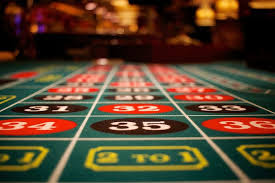Wagering Creates an Illusion of Control
The human brain is over-confident by default. For instance, the illusion of knowledge can give people the false sense of security concerning the daily choices they make, because the brain refuses to admit that they don’t know what’s obvious or are unable to make a clear-cut educated guess.
Why do people gamble? The gambler’s fallacy. To illustrate, take the roulette as an example.




Comments
Post a Comment